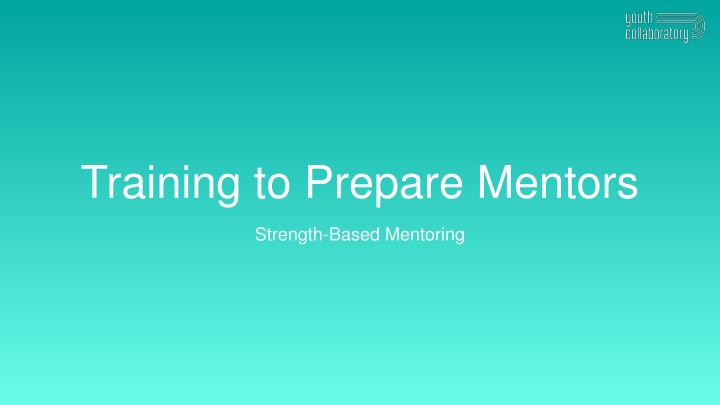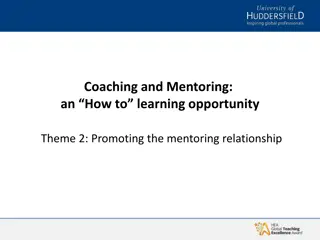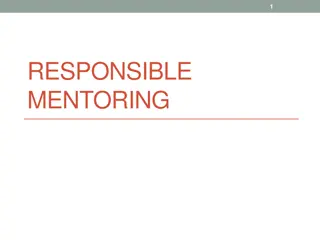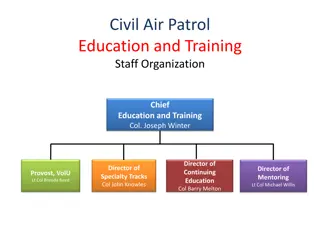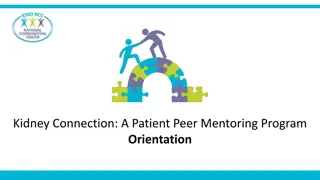Training Mentors for Strength-Based Mentoring
Dive into the impact of parental incarceration on children and families, exploring the challenges faced by caregivers, the emotional toll on youth, and the role mentors play in supporting these vulnerable individuals. Understand the realities, address feelings of loss and anger, and nurture positive outcomes for youth as mentors become connectors in their journey towards resiliency.
Download Presentation

Please find below an Image/Link to download the presentation.
The content on the website is provided AS IS for your information and personal use only. It may not be sold, licensed, or shared on other websites without obtaining consent from the author.If you encounter any issues during the download, it is possible that the publisher has removed the file from their server.
You are allowed to download the files provided on this website for personal or commercial use, subject to the condition that they are used lawfully. All files are the property of their respective owners.
The content on the website is provided AS IS for your information and personal use only. It may not be sold, licensed, or shared on other websites without obtaining consent from the author.
E N D
Presentation Transcript
Training to Prepare Mentors Strength-Based Mentoring
Overview of Training Increase understanding of realities and possibilities Provide some ideas and suggestions to foster positive mentoring relationship Foster positive outcomes for youth
Four Modules 1. Impact of Incarceration on Children and Families 2. Impact of Stress and Trauma on Children 3. Positive Youth Development and Resiliency 4. Mentors as Connectors
Module 1: Impact of Incarceration on Children and Families
You will learn: Some realities of parental incarceration that families might face. How feelings associated with parental incarceration, such as loss and anger, can impact children s relational skills. Your role as a mentor in supporting a child to understand and cope with their experience of having an incarcerated parent.
Impact of Incarceration The United States has reached an all time high in the numbers of children of incarcerated parents. Over half of children of incarcerated parents are under the age of 10. Often housed in facilities that are over 100 miles away from their families. Some children are not aware that their parent is incarcerated.
Impact of Incarceration A majority of children of incarcerated parents are cared for by relatives Caregivers face obstacles in caring for children of incarcerated parents: Increased burden to provide basic needs for family Medical and mental health needs Crowded living arrangements Age and energy of caregiver often a grandparent takes on this role Caring for relative children can lead to or contribute to: Conflicts within the family, Increased stress and obligations, Feelings of guilt, anger and resentment, and Instability
Impact of Incarceration Children of incarcerated parents can be impacted by: Stigma- Embarrassme nt & Shame Poverty Sense of Loss Guilt Depression Trauma
The Role of Mentoring High quality relationships in young people s lives is linked to: increased student engagement improved academic motivation higher aspirations for the future High-quality relationships are characterized as caring, supportive, meaningful, reciprocal. These relationships foster a sense of belonging and competence.
Developmental Relationships Expressing care Challenging growth Providing support Sharing power Expanding possibilities
Wrap Up What did we learn?
